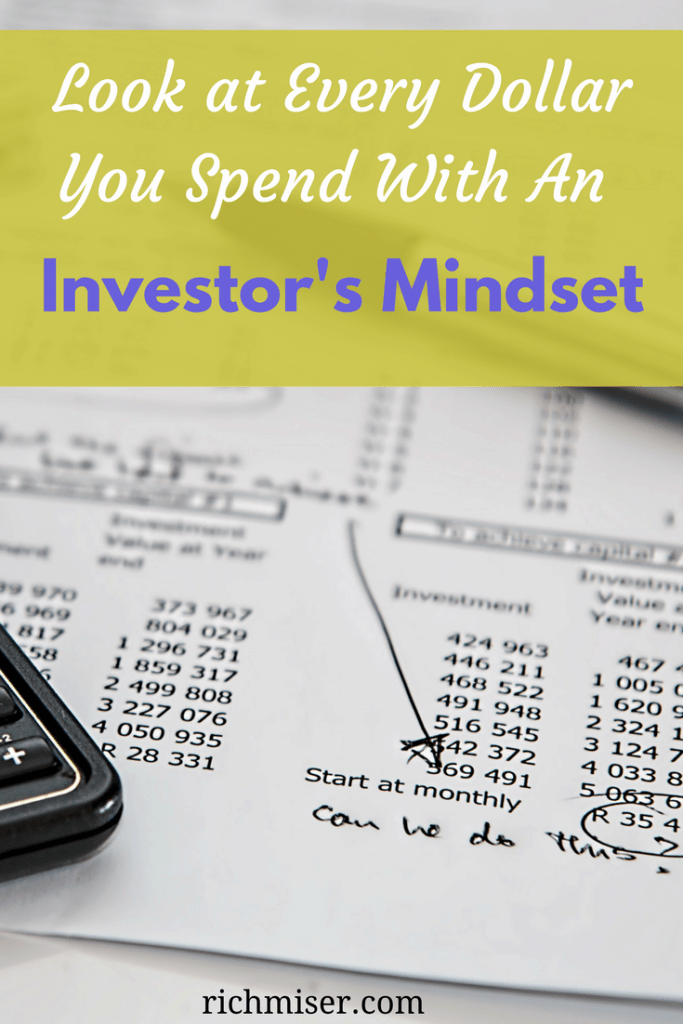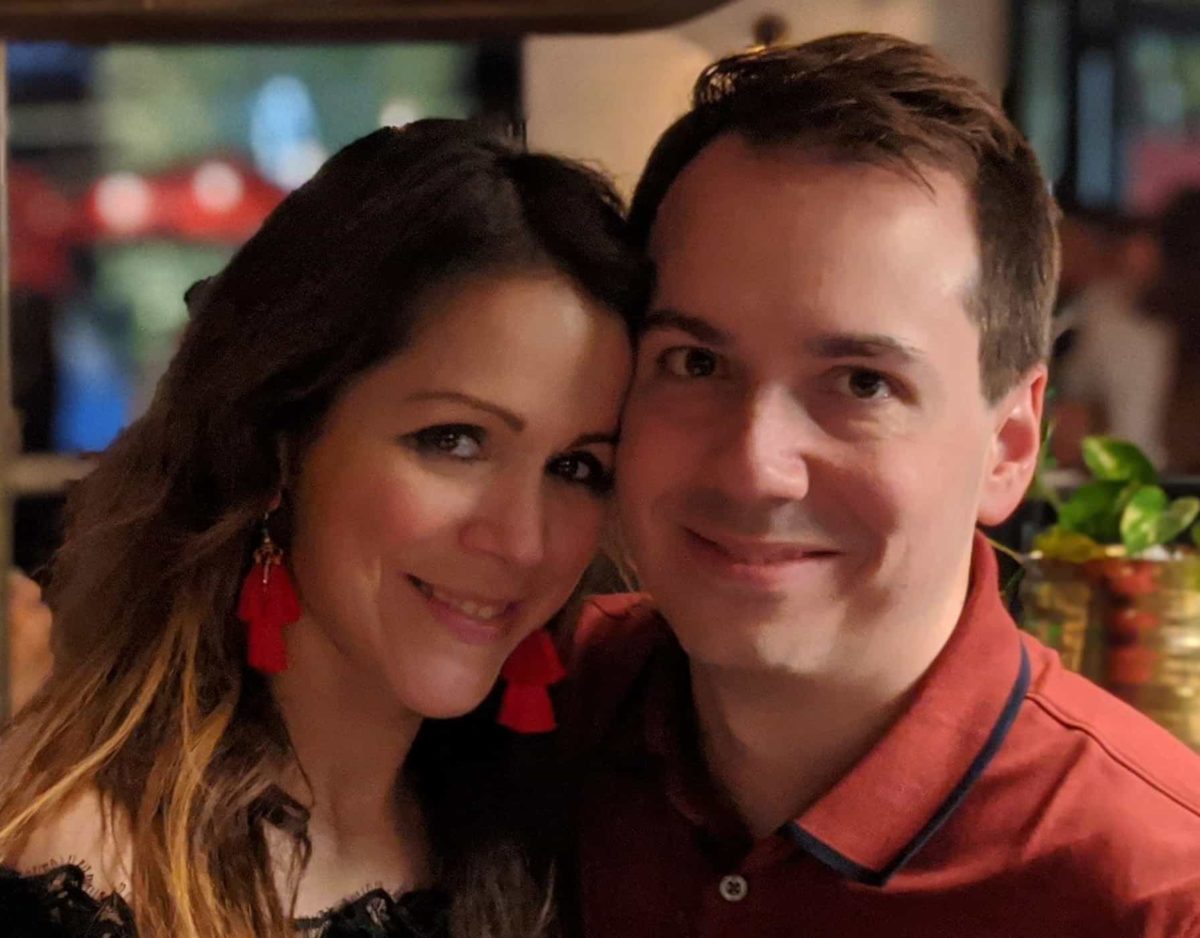We all have ideas that are floating around in our head throughout the day – maybe it’s how we look or how the stock market is doing. We also spend money, practically every day. But we don’t spend all of it efficiently or even in our own best interests (which I’m guilty of, too).
So, I was thinking about an idea on how to better your spend management. It’s to think of every expenditure with an investor’s mentality, in the broadest possible sense. As in investing not just in money growth, but also in living. Here’s what I mean:
Investing in Money Growth
In the narrow sense, an investor is someone who invests money in some sort of security, thing, or business, with the hope and intention of seeing that money grow. You can buy stocks, bonds, commodities, real estate, businesses, and even cryptocurrencies. It’s great to be this kind of financial investor, especially if you follow time-tested investing principles such as buying index funds. Most likely, your money will have long-term growth far beyond that of a savings account.
Behind it all, I think there’s a simple principle: I will put a dollar in something today, and get money out of it in the future, because I’ll sell it for more than a dollar, and/or because it’ll give me an income stream (such as dividends).
But what about if we expand that thought, beyond the money we put into financial investments? What if we also think about our everyday purchases in terms of whether we’re investing in something beyond just money?
Investing in Living
Scenario: you’re hungry and not at home, so you need to buy some food. You’ve got two places in front of you: Whole Foods and Big Kahuna Burger.
Take door number 1: Big Kahuna. You get a big, greasy, delicious burger, fries, and soda for $7. Yum! But what did you just invest in? I’d say the transient pleasure of eating the food, but also in unhealthy weight gain and future disease (and medical expenses). Was the satisfaction worth it? I’d say maybe once in a blue moon.

A Big Kahuna indeed!
Take door number 2: Whole Paycheck Foods. You walk up to the deli and order a lean turkey sandwich on hipster bread, with olives and spinach for $11. Yum? Maybe. But what did you just invest in? I’d say better health, being a leaner and meaner worker the rest of the day, and future medical expense savings. Was it worth it? Probably.
Another one: it’s Friday night and you’re not going out. You turn on the TV, and can either watch a free channel or order Atomic Blonde on Amazon streaming video for a few dollars. Is it a waste of money to watch Charlize Theron kicking ass to awesome ’80’s music for a couple hours? If you do, you’re investing those dollars in happiness and quality of life (trust me, this is a Rich Miser-approved movie).
[Behold a cool, maybe-NSFW fight scene:]
And that’s what I’m getting at. Getting used to thinking about the investment value of every expense, in a broad sense, as part of your spend management strategy. Are you investing in future monetary gains (financial investments), or in something else like enjoyment or relaxation? I know that, as a man of pleasure, I put money into bourbon, vacations, and the occasional video game, but those are things that make me smile. On the other hand, there are purchases that are simply wastes of cash. For example, the January gym membership that’s bought as part of a new year’s resolution, and gets used twice. (I’m all for gym memberships, but only if actually used!).
Think of the Investment Value of Every Purchase
So, as part of one’s arsenal of practical skills, I believe it’s good to condition oneself to think of the investment value of every dollar one spends. Ask yourself:
- How will this purchase improve my life?
-
- Is it something that’s likely to increase in value?
- Will it give me pleasure?
- Will it improve my health?
- Is it going to save me money down the road?
- Is it going to make me look better?
- Will it make me feel better?
- Will I actually use this for more than a few times?
Or, on the flip side:
- How will this purchase worsen my life?
-
- Will it damage my health?
- Will it result in expenses down the road?
- Is something that I’ll get tired of in a couple of weeks?
- Is it an item that will just clutter up my house?
Putting It All Together
Of course, I’m not saying you should always spend money on anything that’s pleasurable. Unless you’ve got millions to burn, it’s probably not a good idea to buy a Maserati, no matter how ecstatic it makes you. What I am saying is that, after running your expenditures through a prudent budgeting and investment strategy, it’s a good idea to do a final, 30 second “investment check” before spending that dough. Because sometimes, that’ll stop you from buying something that truly has no purpose other than a temporary pleasure whose cost isn’t justified by enough benefits. Other times, it’s good to get that taste of the high life!
What do you think about applying this investor’s mindset to your everyday spend management? Does it make for good practical skills?


Miguel, Great post, it illustrates how I think. Not picking on my wife here, but for example purposes she will say buy it, it’s only $5. I think that I could put that $5 to work in our investments and earn a return on it. We balance each other. Tom
Thanks Tom! I think in this way, too, though I still have work to do in terms of cutting out excess “pleasure spending” (less expensive restaurants and drinks).
But yes, money is spent is not money invested, so the spending should yield some sort of benefit. 🙂
It’s a great mindset to have; especially for the food section in my opinion. I know someone who has always lived a healthy lifestyle, exercised and ate well and he recently had a triple bypass. He said a lot of it is simply in our genes. It got me to thinking that everything I’m putting in my body is an investment into my future health. This is something that I really need to focus on and the change will only be seriously made if and when I can get my whole family on-board.
Hey SMM!
Yes, unfortunately genes can play a bad role in our health, even if we do everything right. I think it’s about reducing the odds of getting sick, as well as feeling and looking better.
I’ve generally been able to eat well during most of my life (in large part thanks to my parents), though I’ve had long periods of bad eating, including for the past year or so (just now started to eat well again). From what I’ve experienced, it’s a matter of making habits. As with all habits, the first few weeks/months are the toughest. Then, you get used to the flavors and the way better food makes you feel.
Bon Appetit,
Miguel
Great post! I should adopt this mindset a bit more. Also, another mindset to adopt is to think of every purchase in the equivalent to taxes. Like it took X number of hours after tax to pay for this. Certainly will make one more mindful about purchases.
Thanks GYM! I like your taxes idea; it really brings home the cost of what we buy.
Haha! Who knew stiletto heels could be such formidable weapons? Great post, Miguel. I just looked at my expense tracker and counted the total number of purchases Mrs. Groovy and I made in 2017. 1,047. Of that number, 288 were automated. So, in effect, we really made 759 spending decisions in 2017, roughly 2 a day. How many of those 759 spending decisions did we do with the mind of an investor? My guess is that the number was shockingly low. Now imagine if just half of our spending decisions were made with the mind of an investor. Talk about a game changer! Here’s to more investor-minded decision-making in 2018, my friend.
P.S. Thanks for turning me onto Ameer Rosic. The guy’s awesome.
Hey Mr. Groovy!
I’m so glad you found it useful 🙂 I don’t like spending money, so I was thinking that if I’m going to spend, it should be on something that will bring some sort of positive outcome to my life. I think it’s a good little check that we can make before the spending decision.
Glad you like Ameer’s videos! There’s a lot of fluff and BS in the crypto sector, so I like it when I find someone who seems serious and makes sense.
Cheers,
Miguel